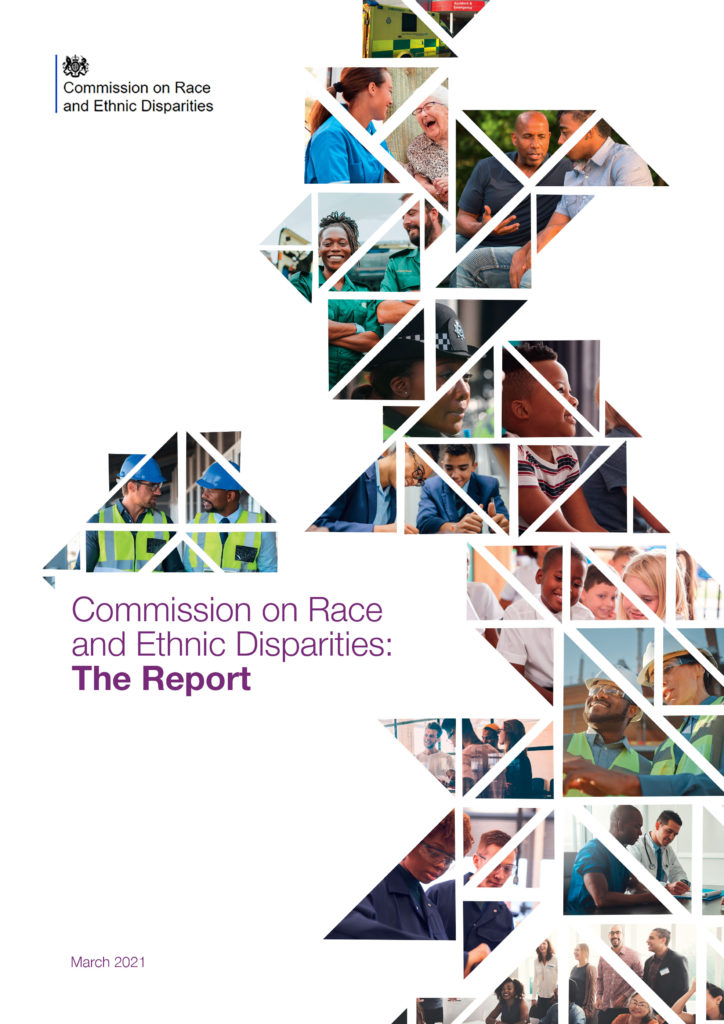
The UK no longer has a system rigged against people from ethnic minorities, a review has found.
The Commission on Race and Ethnic Disparities published their report: The report of the Commission on Race and Ethnic Disparities yesterday.
The Commission, chaired by education consultant and ex-charity boss Dr Tony Sewell, was set up last summer following the death of George Floyd and the subsequent rise of the Black Lives Matter campaign.

Prime Minister Boris Johnson issued the following statement: “The Commission on Race and Ethnic Disparities was launched to conduct a detailed, data-led examination of inequality across the entire population, and to set out a positive agenda for change.
“I want to thank Dr Tony Sewell and each of the commissioners for generously giving their time to lead this important piece of work. It is now right that the Government considers their recommendations in detail, and assesses the implications for future government policy.
“The entirety of government remains fully committed to building a fairer Britain and taking the action needed to address disparities wherever they exist.”

Commenting on the report published yesterday by the Commission on Race and Ethnic Disparities, TUC General Secretary Frances O’Gray said: “Institutional and structural racism exists in the UK, in both the labour market and wider society.
“Black and Minority Ethnic workers are far more likely than White workers to be in low-paid, insecure jobs – such as temporary and agency jobs or zero hours contracts. And Black and Minority Ethnic workers have been far more likely to be exposed to Covid infection and far more likely to die – because they are far more likely to be in frontline roles.
“This is institutional racism. And it traps too many Black and Minority Ethnic workers in poverty, insecurity and low pay.
“We hoped that the Commission would recommend action to stamp out insecure work and make employers act to close their ethnicity pay gaps.
“Instead, the Commission has chosen to deny the experiences of Black and Minority Ethnic workers and be complacent about the UK’s progress towards being an anti-racist society.
“The TUC calls on politicians of all parties to stand with Black and Minority Ethnic workers and commit to ending institutional racism in the UK labour market and society – starting with bringing in mandatory ethnicity pay gap action plans and banning zero hours contracts.”

Commenting on the Commission on Race and Ethnic Disparities: The Report, Dr Hodon Abdi, co-chair of the Royal College of Emergency Medicine’s Equity, Diversity and Inclusion Committee, said: “We are disappointed in the findings of this report in relation to health.
“Last month, the Workforce Race Equality Standard report was published and its stark findings demonstrated the difference of experience between ethnic minority staff and their white counterparts.
“The findings of the WRES, while shocking, revealed that NHS health workers from ethnic minority backgrounds find it harder to progress in their career, are less likely to be appointed in roles they are shortlisted for, and were more likely to suffer bullying, harassment and abuse from both patients and from other staff, than their white colleagues.
“The report presented the reality that many of our colleagues from ethnic minority backgrounds face. The report was a positive starting point to begin a discussion and it presented an opportunity for health organisations to acknowledge the severity of the problem in the NHS and begin to actively tackle them with tangible solutions.
“Sadly, the CRED report seems to have ignored the findings of the WRES. We, however, are committed to addressing all equality, equity and race issues and will continue to provide proactive solutions to real problems our members and ED staff face.”
Dr David Chung, co-chair of the Equity, Diversity and Inclusion committee, said: “The NHS staff survey 2020, published earlier this month, found that ethnic minority staff were more likely to be deployed onto covid wards and our own survey found that ethnic minority staff were less likely to be risk assessed, less likely to have access to appropriate PPE, and were less likely to have PPE fitted.
“The CRED report suggests a very different story and fails to recognise what is in plain sight. That, within the NHS systemic and structural racism is prevalent: across recruitment; pay; career progression and opportunity; and the experience of bullying, harassment, or abuse.
“We must be honest about racism and not gloss over the issues. We must take a proactive approach in tackling these issues and we must better support and protect staff from ethnic minority backgrounds and act to make the NHS a more equal and accepting workplace.
“If we fail to acknowledge racism within the NHS, we could fail to recognise any racism towards patients. There is a link between structural racism and health inequalities and we must admit that so we can begin to address it.
“In the College’s Equity, Diversity, and Inclusion Committee, we are fully committed to recognising and addressing all issues around equity, equality and race. Racism and disparities are unacceptable in our College, they are unacceptable in Emergency Medicine, and they are unacceptable in the NHS.”











